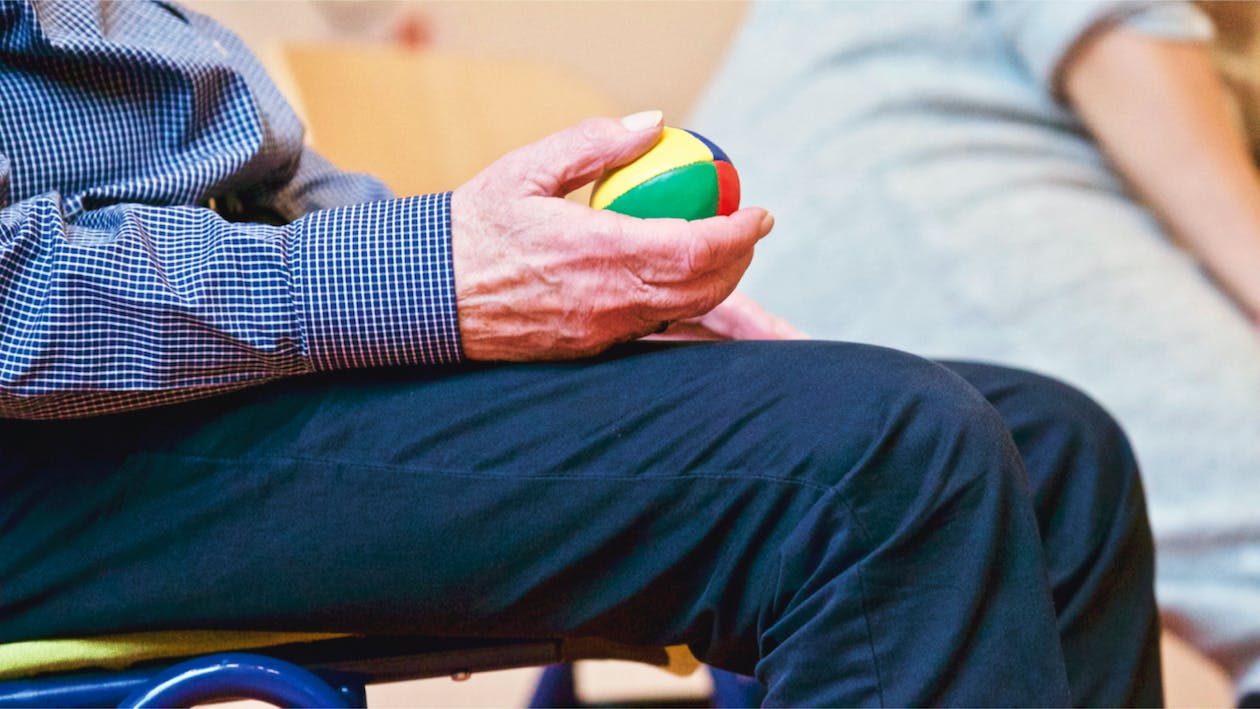As a science that seeks to understand and address human behavior, psychology must rely on reliable scientific data to move forward. Therefore, in recent years more and more professionals have been emphasizing the importance of implementing evidence-based treatments.
Such psychotherapies are supported by controlled studies that show or question their impact on mental health. Despite this, not all mental health professionals practice them. Indeed, some suggest they are reductionist.
On the other hand, other critics claim that their results are based on biased data. In this article, we will explore these psychotherapies and how reliable they are.
Evidence-based therapies
The term evidence-based treatments originated to refer to treatments that have been shown to be effective in clinical trials. This means that it is possible to replicate and test their effects using the scientific method. Over time, the term came to be used in the field of psychology and psychotherapy.
Hans Eysenck, a famous British psychologist, published a paper on evidence-based psychotherapy in 1994. In this study, he pointed out that many treatments had not been shown to be more effective than natural remission of symptoms of a disorder or placebo. It was therefore important to evaluate the results of the different treatments available in more rigorous ways.
Since then, it has become essential for mental health professionals to review the evidence supporting or discrediting an intervention. This allows them to select the best alternatives and implement them in clinical practice.
Evidence-based therapies according to the American Psychological Association (APA)
The APA recommends a classification that includes more than 80 different types of psychotherapy. The classification criterion is the quantity and quality of evidence supporting these interventions. It is therefore possible to find evidence-based treatments with ‘strong’, ‘weak’ or ‘insufficient evidence’.
It should be noted that all treatments are categorized according to how effective they are for specific conditions. This is because it is not possible to apply the same treatment universally for existing pathologies.
Next, we will look at some examples of evidence-based psychotherapies.
1. Behavioral Activation (BA) treatment for depression
Behavioral activation (BA) for depression is based on the premise that this disorder causes abandonment of routines and isolation. Its aim is to increase the frequency with which the patient performs rewarding actions. In fact, their behavior can be said to ‘activate’, avoiding lethargy, isolation and loss of pleasure.
Simmonds-Buckley, Kellet, and Waller (2019) published a review on the effectiveness of the BA group in the treatment of depression. Behavioral activation therapy was found to have moderate to high effects on depressive symptoms in adults. Further research showed that it was also effective in addressing depression in young people. However, more studies will be needed for this to be conclusive (Tindall et al., 2017).
2. Cognitive behavioral therapy for depression
Among evidence-based therapies, the cognitive-behavioral approach is one of the most recommended. Therapies within this framework are mixed with principles of behaviorism to address problems in thinking and behavior.
Santoft et al. (2019) published a review on the effectiveness of this treatment for depression in primary care. It was found to be an effective model of psychotherapy, recommended for patients with moderate to mild depression.

3. Dialectical-behavioral therapy for borderline personality disorder (BPD)
Borderline personality disorder is a condition that causes difficulty in regulating and expressing emotions. As a result, different behavioral problems arise, such as self-harm or risky behaviors in an attempt to find relief. Dialectical-behavioral therapy is often the treatment of choice for these cases.
A study was conducted to evaluate the effectiveness of a five-week dialectical behavior therapy program in patients with BPD. The results showed that the treatment reduced symptoms. Indeed, the more patients improve their emotional regulation, the more they benefit (Probst et al., 2019).
4. Acceptance and Commitment Therapy (ACT) for chronic pain
Chronic pain is a complex disease that in most cases cannot be completely cured. However, with evidence-based treatments it is possible to regulate patients’ symptoms and improve their quality of life. Acceptance and Commitment Therapy (ACT) is therefore a really promising treatment for pain relief.
In simple words, ACT proposes that by changing patients’ expectations about pain relief, it is possible to make them suffer less. Following these lines, Feliu-Soler et al. (2018) conducted a review of the existing evidence in this area. They concluded that the evidence is promising, although more rigorous studies are needed.
5. Biofeedback
Biofeedback techniques provide the patient with data about body functions such as muscle movement. It is often believed that it is not possible to control such reactions, but having the information makes it easier to do so.
A publication detailed the status of biofeedback in the treatment of various pathologies. It was found to be effective in addressing multiple problems such as urinary incontinence or headaches. It was also found to be successful in treating conditions involving balance and fecal incontinence (Kondo et al., 2019).
Evidence-based treatments today
As mentioned earlier, evidence-based therapies tend to be seen as the gold standard in psychotherapy. Indeed, many experts argue that the most ethical practice is to apply interventions that have previously been shown to be effective. This is done to guarantee that the treatments are beneficial and help improve the patient’s quality of life.
However, recent research suggests that evidence-based psychotherapy is not as robust as it seems. Sakaluk et al. (2019) conducted a meta-review of the value of this group of therapies. They concluded that the reproducibility and value of the evidence is quite low in most of these therapies. Therefore, they recommended improving the analysis processes for clinical trials.
In conclusion, while the concept of evidence-based treatments is the gold standard, we are still far from reaching it. Indeed, more rigorous evaluation methods need to be developed to ensure the quality of the data presented.
This text is provided for informational purposes only and is not a substitute for consultation with a professional. If in doubt, consult your specialist.
Bibliography
All cited sources have been thoroughly reviewed by our team to ensure their quality, reliability, timeliness and validity. The bibliography of this article was deemed reliable and of academic or scientific accuracy.
- Eysenck, H. J. (1994). The outcome problem in psychotherapy: What have we learned?. Behaviour Research and Therapy, 32(5), 477-495.
- Feliu-Soler, A., Montesinos, F., Gutiérrez-Martínez, O., Scott, W., McCracken, L. M., & Luciano, J. V. (2018). Current status of acceptance and commitment therapy for chronic pain: a narrative review. Journal of pain research, 11, 2145.
- Kondo, K., Noonan, K. M., Freeman, M., Ayers, C., Morasco, B. J., & Kansagara, D. (2019). Efficacy of biofeedback for medical conditions: an evidence map. Journal of general internal medicine, 34(12), 2883-2893.
- Probst, T., O’ROURKE, T. E. R. E. S. A., Decker, V., KIEßLING, E. V. A., Meyer, S., Bofinger, C., … & Pieh, C. (2019). Effectiveness of a 5-week inpatient dialectical behavior therapy for borderline personality disorder. Journal of Psychiatric Practice®, 25(3), 192-198.
- Sakaluk, J. K., Williams, A. J., Kilshaw, R. E., & Rhyner, K. T. (2019). Evaluating the evidential value of empirically supported psychological treatments (ESTs): A meta-scientific review. Journal of Abnormal Psychology, 128(6), 500.
- Santoft, F., Axelsson, E., Öst, L. G., Hedman-Lagerlöf, M., Fust, J., & Hedman-Lagerlöf, E. (2019). Cognitive behaviour therapy for depression in primary care: systematic review and meta-analysis. Psychological medicine, 49(8), 1266-1274.
- Simmonds-Buckley, M., Kellett, S., & Waller, G. (2019). Acceptability and efficacy of group behavioral activation for depression among adults: a meta-analysis. Behavior Therapy, 50(5), 864-885.
- Tindall, L., Mikocka‐Walus, A., McMillan, D., Wright, B., Hewitt, C., & Gascoyne, S. (2017). Is behavioural activation effective in the treatment of depression in young people? A systematic review and meta‐analysis. Psychology and Psychotherapy: Theory, Research and Practice, 90(4), 770-796.




